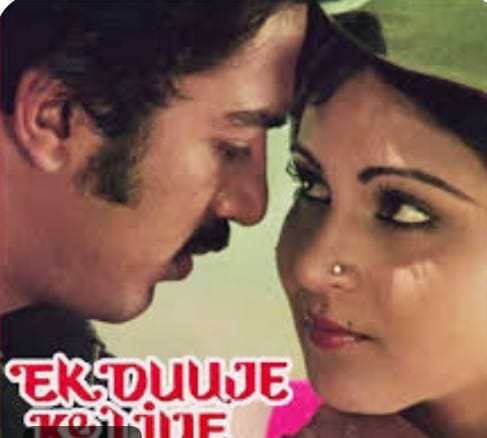The foundation of human creation lies in the chemistry between a girl and a boy, which is love. This love became the inspiration for universality. This union began with small sounds, forming love signals, which turned into words, leading to the merging of two souls, and gradually, they enhanced their imagination together. The scientific way we have fortified this relationship… the true essence of love lies in how this indescribable, infinite love evolved from an animalistic state to human experience. Love knows no differences; it transcends regionalism, caste, religion, and language barriers.
In any love story, what happens? A boy and a girl fall in love. In their journey, there are ups and downs, conflicts, plot points, and the story either concludes with a sad or happy ending. Some characters turn into villains along the storyline, and often, parents are part of those villains. But in the end, they stand for each other—”Ek Duuje Ke Liye.”
The 1978 film “Maro Charitra,” the original version, featured Kamal Haasan as a Tamilian who cannot speak Telugu and Saritha as a girl who cannot speak Tamil. Both delivered outstanding performances. The reasons why “Maro Charitra” broke box office records include the direction by K. Balachander, the story, screenplay, dialogues, the lyrics by Aathreya, and the music by M. S. Viswanathan. Every song in this film was a super hit. This winning formula was carried forward in Hindi by the duo Laxmikant-Pyarelal. Remarkably, all songs in the Hindi version were sung by S. P. Balasubrahmanyam.
“Tere Mere Beech Mein Kaisa Hai Bandhan” is my all-time favorite song. Listening to it brings such a pleasant feeling, as it evokes emotions purely through the song itself, without the need for any external visual stimulus. The song alone can stir memories, desires, and deep feelings. By Prakash Surya


